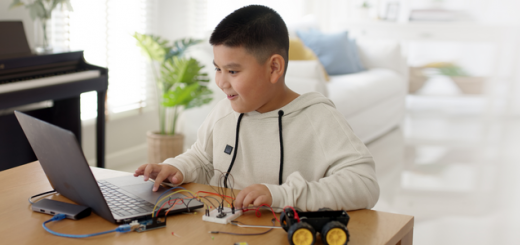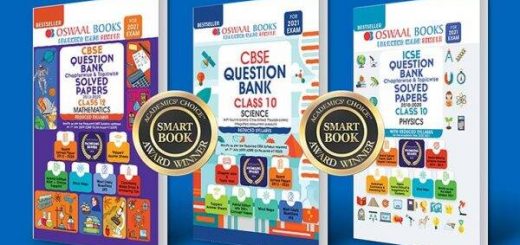STUDENT VOICE: Higher education can — and should — help nontraditional students like me
I grew up knowing I wanted to graduate high school and pursue a college degree. I aspired to be a chemical engineer and had big dreams of curing cancer and AIDS.
However, I was raised in a chaotic household that left me unprepared, both financially and emotionally, for managing college life. That deprived me of achieving those goals, at least for several decades.
My parents divorced when I was only 3. My mother had a difficult time caring for me and my brother, so we were placed in foster care.
My grandparents gained custody, but that living situation presented its own set of challenges. They were old-fashioned, and because of my structured and strict upbringing, I was naive about the realities a traditional college setting would present.
Despite getting good grades in high school, I struggled during my first year at Clarkson University in New York and found myself unable to balance both my schoolwork and social life.

Those challenges increased tenfold when my parents were unable to support me financially as they had promised while I pursued my bachelor’s degree. As a result, I relied on student loans to pay for college.
After my first year, I dropped out of Clarkson and worked as a receptionist for a year while I saved enough money to go back. I returned to my local SUNY campus with hopes of getting my grades up, but I continued to struggle and soon withdrew.
After dropping out of college a second time, I reentered the workforce and started at Macy’s as a cashier and sales associate. Over the course of 11 years, I was promoted regularly. I also got married and eventually became pregnant.
Soon after I became pregnant, my husband passed away and I learned that my son, James, had a congenital condition that caused him to have a hole in his diaphragm. I had an emergency caesarean section a month early at the Children’s Hospital of Philadelphia. I quit my career and spent 31 days by his bedside seriously considering what I wanted to do next.
I had a lingering feeling that my talent was being wasted, and I kept coming back to my dream of becoming a chemical engineer. I decided then and there — at 39 years old and 19 years since I was last in college — to return to school.
Historically, the college student demographic within the U.S. has largely consisted of students fresh out of high school with middle- or higher-income backgrounds. In the past decade, there has been a notable shift. Recent studies have found that nearly 75 percent of college students are “nontraditional,” defined as over 25, often with full-time jobs (59 percent) and children of their own.
Students like me.
My decision to return to school, though a terrifying prospect at my age, wasn’t my only challenge. As a single mother, I sought out additional support and services to help me balance my work/life schedule, finance my college education and purchase the necessary course materials. I was also looking for the confidence I needed to succeed.
My decision to return to school, though a terrifying prospect at my age, wasn’t my only challenge.
I started at Onondaga Community College (OCC) in Syracuse, and did well upon my return, with the help of opportunity programs like the Collegiate Science and Technology Entry Program and Onondaga’s Box of Books program. The latter is a partnership with Barnes & Noble College’s First Day Complete program, which made the cost of textbooks more affordable and ensured that I had access to course materials before the first day of class .
During my first semester, my grandparents covered private preschool costs for my son, but when Covid hit during my second semester, it became unsustainable. However, I found that OCC had a preschool program, and I was able to arrange my class schedule around preschool availability and qualify for grants that made it possible for me to afford the fees.
After two years at OCC, I was accepted to Syracuse University’s College of Engineering and Computer Science. I am currently working toward a master of science degree in chemical engineering, while interning as an undergraduate researcher with Brookhaven National Laboratory (funded by the U.S. Department of Energy). I am studying the dynamic behavior of insulin and hope to secure a full-time job postgraduation.
Now James is in kindergarten, and I am able to work my school schedule around bus pick-up and drop-off times. My professors are more than understanding if I need to log on virtually or have James come to class with me.
Related: Largely unseen and unsupported, huge numbers of student fathers are quitting college
My story makes clear the many challenges nontraditional students face. Higher education institutions need to acknowledge these difficulties and invest in academic, financial and social support programs to foster greater equity by providing:
- transition advisors to help students acclimate to new learning environments
- financial aid specialists to help students find and get available aid
- inclusive programs to ensure all students have access to necessary learning materials on or before the first day of class
- connections to social support programs to enhance students’ college experiences.
My path has been anything but traditional, yet my story is not unique. The resources and tools made available to me when I returned to college were instrumental to my current success and will be similarly critical to the continued success of future nontraditional students.
Alexis Riccardo is a 46-year-old mom and senior at Syracuse University. She is also an undergraduate researcher with the Brookhaven National Laboratory, funded by the U.S. Department of Energy, studying the dynamic behavior of insulin.
This story about nontraditional students was produced by The Hechinger Report, a nonprofit, independent news organization focused on inequality and innovation in education. Sign up for Hechinger’s newsletter.


